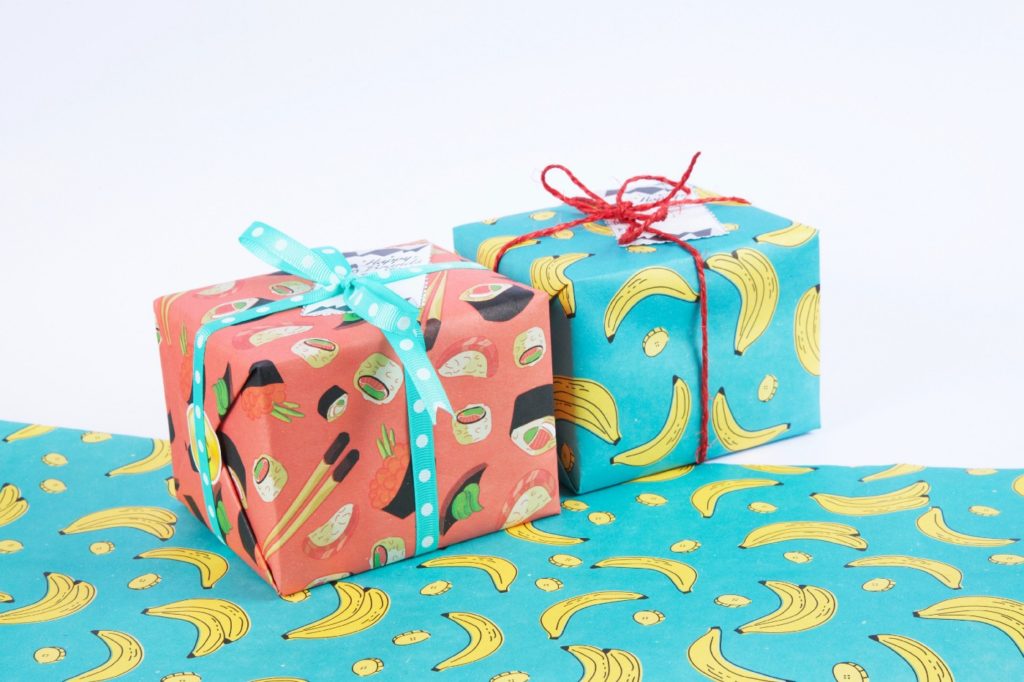How to Turn Failure Into a Gift

Recent times have made a couple of things feel commonplace, like Zoom Happy Hours, contactless food delivery, and expressing feelings of any sort via Tik Tok dance routines. And wherever you live, what your background might be, or whatever you do, one experience shared by so many was a sense of failure.
Yup, there it is. The real “F-word” screwed with so many of us, whether you grappled with it personally or on a collective level.
As a pre-teen, my decades-long fear of failure was sparked while watching my parents struggle financially. Dad would pretend to make light of his dreams of expanding the family business that didn’t manifest. Sure, my younger brother would take over many years later and turn the now third-generation restaurant concept into a successful franchise operation. But back then, it broke my heart to see dad feel inadequate and talk about being a failure, especially when I was too young to do anything about it.
A burning need to avoid that kind of scenario pushed me to overachieve. I worked hard to win competitive speaking trophies in high school and attended a top-notch university. After a brief stint as a peon with NBC News, I started my career in Public Relations. And for the most part, I excelled.
Despite ups and downs in my personal life, my career felt mostly solid. My work was recognized with industry awards as I took positions of increasing responsibility at increasingly larger companies. Rebounded from a massive corporate layoff with minimal bruising, at least in hindsight, to start my own PR firm. Racked up more awards for client work, built a great team and occupied a fancy office space — until the Great Recession brought it all crashing down in 2009.
Suddenly, new business completely dried up as companies nationwide cut back on their spending in droves. I had to fire great people, which was devastating. Found myself loaded down with more than $100,000 in business debt and a six-year office lease without an escape clause. Nearly 200,000 small businesses went under in the U.S. during that time, so I was not alone. But I felt ashamed, like a complete, absolute failure.
My deepest, darkest fear became a reality. What I could not have known at the time, and the years of struggle that followed, was how that business failure would ultimately lead me to claim a better, more fulfilling life.
Perhaps I should let author JK Rowling, creator of the Harry Potter series that inspired a love of reading amongst hundreds of millions of kids, explain. As a single mother on welfare in the UK, she got numerous rejections from publishers before finally landing a book deal. Back in 2006, she delivered a compelling speech at Harvard University called “The Benefits of Failure” about her experiences.
“Failure meant a stripping away of the inessential,” said Rowling in that commencement address. “I stopped pretending that I was anything except what I was and began directing all of my energy into finishing the only work that mattered to me. I was set free because my greatest fear had been realized and I was still alive, still had a daughter I adored, an old typewriter and a big idea.It is impossible to live without failing at something unless you’ve lived so cautiously that you might have well not lived at all. The ability to use failure often leads to the greatest success.”
Her words had, and continue to have, a profound impact on me. When I first read them in 2010, it gave me hope. Working from home for the next few years allowed me to pay off my business debt while subleasing the expensive office suite. My interest in human potential deepened and I became a certified executive coach. Brought all of my interests together and took a great corporate communications leadership role in 2014. Over the past few years, I started writing and speaking to help others overcome obstacles and claim what they deserve.
If I had not had my career failure, chances are good I would still be on my old path. Less curious and less excited. Without ever having the freedom to dig deep into who I was and what mattered in my life at this point. Sure, that time sucked. But I would not trade any of it away now.
Bad Reputation
So, let’s talk about failure. Like trans fats, Joan Jett or gas-guzzling cars, the term has gotten a bad reputation in our society. However, failure is a normal part of life. The COVID-19 pandemic certainly reinforced that lesson.
“What the events of 2020 have shown us is that at our heart, we are a compassionate society,” said Certified Professional Coach Natalie Siston, author of Let Her Out: Reclaim Who You Have Always Been.
“We care so deeply that when things go poorly for others, we see it as a personal failure. Your kids not having a good educational experience means I have failed as a parent. A loved one getting sick equates to I have failed them. Communities seemingly turning on one another during unrest means we have failed each other. When we can step back and take a less self-centered view, people will realize this failure is the greatest learning of our lives. Our kids will spring back. Those who were sick learn to take care of their bodies. As communities, we will get creative about how we show up for one another. In this regard, this year has made failure be about ‘self,’ when the opportunity is the learning for the betterment of the whole.”
Upside of Failure
Siston has a great point about the upside of failure. It can be an excellent teacher on so many levels. Just ask Erin Randall. When her father had a stroke in 2013, it was the beginning of multiple challenges. She pulled double duty for several years, working a corporate job in Texas while helping to manage his veterinary practice in southern Montana, a learning experience that Randall says involved “screwing up a whole lot.”
Then in 2015, she was diagnosed with inflammatory breast cancer. Randall spent the next 18 months in chemotherapy, radiation, and undergoing three difficult surgeries. Everything was going wrong, all at once.
“When I wasn’t in the infusion room or the surgery table, our house was trying to kill us,” said Randall. “That year alone, we had a major leak under the floor, the HVAC system died, and we learned that our house needed to be pinned to keep it from sliding off the foundation. And then, one month after returning from what I still view as the scariest surgery of my life, I was part of a mass workforce reduction.”
Already established as an agile coach, Randall began co-active coach training in 2019. She started 2020 in Tanzania, with full intentions of climbing Mt. Kilimanjaro alongside her mom and four other friends to proclaim her victory over cancer at the top. But despite spending a year training for the climb, the summit attempt failed due to a severe case of altitude sickness that shut her body down. Randall returned home, ready for the full-fledged launch of her own coaching practice just as the world went into lockdown from the pandemic.
Heaping doses of humor, humility, and grit have helped Randall deal with each challenge. Before her mastectomy, she hosted a “boob voyage” party with all of her girlfriends. She regrouped during 2020, and today, her business coaching people that want transformational clarity and change is thriving. All of these experiences have helped her develop a healthy attitude towards failure.
“Failure is a gift because I’m not expecting perfection of myself,” she explained. “Permission to fail is giving me permission to experiment, to not do it right the first time, to really see what works.”
Redefine the Boogeyman
I strongly believe it is time to change the way our culture perceives failure. Instead of stigmatizing it as a boogeyman to be avoided at any cost, consider how failure creates an opportunity to learn, grow and achieve more over time. Especially if you consider that Oprah, Steve Jobs and Walt Disney were all fired from jobs along the way before creating their biggest successes.
Thomas Edison had 1,000 unsuccessful attempts at creating the light bulb before getting it right. It took five years and 5,126 failed prototypes for James Dyson to develop the world’s first bagless vacuum cleaner. Iconic director Steven Spielberg was rejected both times he applied to attend film school at University of Southern California.
Albert Einstein once said, “Success is failure in progress.” That poster child for brilliance certainly knew a lot about the topic. Einstein didn’t start talking until age four, was expelled from school and refused admittance to Zurich Polytechnic School, his top pick. Yet he still ended up winning the Nobel Prize in Physics in 1921. What matters is that in facing failure, you keep on going. Lick your wounds, try to find the lesson and move on.
Curious about how to shift your feelings of failure into a positive experience? Siston advises that you ask yourself what the learning and opportunity is in this moment. “When we allow ourselves to wallow in our failure, we dwindle and diminish,” she explained. “When we turn a failure into a gift, we are growing.”
An Excellent Present
Here is a thinking exercise to gain more clarity about failure. If you like to write about your feelings, consider journaling the answers. Or, if you gain more clarity during discussions with others, enlist a trusted friend or professional to ask these questions and record your responses.
1. Think about the failed circumstance. How did you feel when it happened? How do you feel about it today?
2. What did you learn from this experience?
3. What did it teach you about your capacity for resilience and growth?
4. Consider your qualities which you are most proud of. How did dealing with this circumstance hone those skills and behaviors?
5. If you were talking to your best friend, what would they say about how you handled this situation and the person you’ve become because of it?
Okay, now pause. Maybe get a snack, take a walk around the block or do whatever you need to let your responses sink in for a bit. Then, in that place of where things feel and look clearer, ask yourself two more questions:
6. With all you have learned, what is now possible moving forward?
7. Would these opportunities or possibilities have been available without your experience of failure?
Forget that subscription to a bacon of the month club or the latest video game console you received on your last birthday. That setback or huge disappointment that once turned your world upside down can now become one of the best gifts you have ever received.
